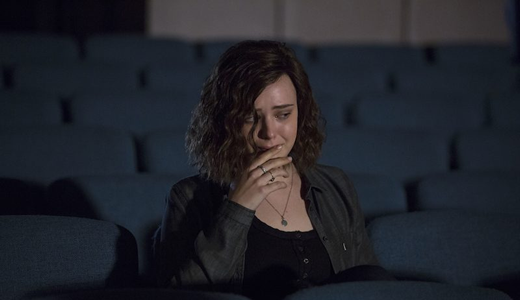The Netflix series 13 Reasons Why has been out for more than three months now, but it’s still in the news for all the wrong reasons. Two California teens committed suicide in April, and their grieving parents are speaking out now, blaming 13 Reasons Why for their children’s deaths.
Bella Herndon hanged herself in her bedroom closet April 18. She died 10 days later without regaining consciousness—just three days away from her 16th birthday. Her father, John, has been desperately trying to squelch Netflix’s planned second season for 13 Reasons.
“I think Bella would [still be alive if she hadn’t watched this show]. It’s chilling to me that Selena Gomez, who worked with Disney making movies that families watched, steered her fan base to this,” he told In Touch, “Someone has to stand up and say, ‘This is wrong.’”
Priscilla Chui, 15, also killed herself shortly after watching the show. Her uncle and guardian, Peter Chui, said that Priscilla was battling depression, and that the show might’ve contributed to her death.
“I feel it’s dangerous for that small percentage of young adults who the show can become a trigger for them, and I feel as if the show gives only one alternative for cyber bullying and other teenage issues,” Peter told KTVU, a television station in Oakland, Calif.
Plugged In and its parent ministry, Focus on the Family, have been talking to parents about 13 Reasons Why for a while now, putting together a free resource for concerned moms and dads that might help them walk through the issues that the show deals with. I believe that the controversial show—and I don’t say this lightly—can be, quite literally, dangerous.
But as is so often the case when it comes to entertainment, the issues here are too complex simply to stop there.
Just as parents grieve lost children and point to 13 Reasons as a factor, some teens and young adults say that 13 Reasons saved their lives. In an interview with Entertainment Weekly, author Jay Asher says he’s heard from many of those teens on his Myspace page:
The most common thing I’d hear was just “This book makes me more aware that even the small things I do can have an effect on people.” But I’ve also heard from teens who say, “I was suicidal when I picked up your book, and I identified with Hannah, and I wanted her to live.” When I started getting emails like that … I can’t even describe the feeling.
From what I’ve gathered in my research, Asher’s book seems to have precipitated more positive reactions, while the Netflix show has been viewed more as a greater negative influence.
Perhaps part of this can be explained by how the book and movie differ in depicting the suicide itself: The book doesn’t show it at all. We know that Hannah killed herself, but the act itself takes place “offscreen,” if you will. But in the Netflix program, the act is shown in graphic, excruciating and some say instructional detail. Mental health experts point to that scene, more than any other, as why Netflix’s 13 Reasons Why is so misguided and dangerous.
I wonder, too, if we simply process books and television shows differently. Books can often impact us more than movies or television in some ways, because we interact with that medium so much more intimately. But books also allow us to work through the material and digest it at our own pace. With movies and television, the pace is set for us. The images we see—also not of our own choosing—are crammed into our psyche with very little input even possible from us.
But there’s also this: What we bring to our entertainment is just as important and influential as what our entertainment brings to us.
It’s rather trite to say that we’re all very different people, but it’s true. And that’s really important to remember when it comes to media discernment. Our memories and experiences shape us. We carry different baggage and bear different scars. We’re made up of our own unique collection of stories. As such, we react uniquely to the stories we watch and read and listen to. A movie that may resonate deeply with me might leave you cold. A television show that might shake you to the core might feel shallow to your best friend. We don’t react to entertainment with uniformity.
That why at Plugged In, we try to unpack the content and leave the decision to watch or not to watch up to you. We don’t know your 8-year-old son or 14-year-old daughter, after all: You do. You’ll know, far better than we do, what moves them, scares them or might lead them in a problematic direction.
When it comes to a story like 13 Reasons Why, it’s all the more critical for parents to know their children well—to be willing to have important, sometimes difficult, conversations with them. It’s critical for parents to know not only what their children are watching but, when possible, to watch it with them so that you can talk about what’s being depicted there.
Entertainment is incredibly influential, and it seems as though its influence grows with each passing day. But parents, your influence dwarfs that of any movie or television show, any album or video game. They may not always show it, but your kids care what you think. They’re depending on you to help lead them into adulthood. And that means both guiding and speaking into the entertainment they consume.






Recent Comments